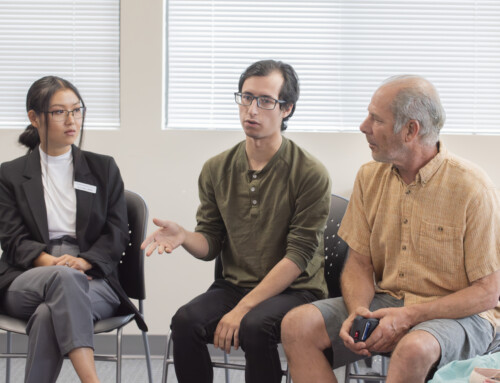
When someone has memory loss or dementia, it can be easy to become disoriented and confused, even in familiar places. Wandering is common among those with dementia and can be dangerous if ignored. Being aware and being prepared for this common behavior will help keep the person with memory loss safe and give you greater peace of mind.
In the event the individual with memory loss leaves a safe place or becomes lost, do not wait. Contact 911 immediately. A missing person with dementia is “at risk” and should receive a law enforcement response right away.
Understanding Wandering
Everyone with memory loss is at risk for wandering. The disease can cause many changes in the brain including difficulty recognizing people and places, inability to know what is real vs. imagined, difficulty remembering important facts (like name or address) and more. Often, someone who is wandering is:
- Searching: People who wander are often looking for something or someone familiar, especially if they have recently moved to a new environment. In other cases, they may be trying to satisfy a basic need, such as hunger, thirst or they need to use the bathroom but they have forgotten what to do or where to go.
- Escaping: Wandering can be the result of stress or anxiety. It can also be a response to an over-stimulating environment (caused by multiple conversations, a loud television, or visitors in the home).
- Reliving the past: If wandering occurs at the same time every day, it may be linked to a lifelong routine or responsibility, such as going to/from work, picking up children, etc.
- Self-soothing: Some individuals may feel the need to constantly stay in motion. They may be restless, make repetitive movements, or pace.
Reducing the Risk of Wandering
There may not be warning before the first wandering incident, but there are simple strategies to reduce wandering behavior and minimize the risk of injury. Consider these strategies:
- Increase physical activity: Additional physical activity during the day may reduce the tendency to get up and walk around during the night (when wandering often happens).
- Identify potential causes: Wandering can be triggered by simple causes such as boredom, discomfort, hunger, or the need to use the bathroom. Proactively addressing these needs can prevent a wandering incident.
- Increase home safety measures: Consider basic safety devices such as motion-sensor alarms that signal when a door is opened, motion-detecting lights, etc.
- Provide visual cues: People with dementia may forget where they are, even in their own home. It can help to post signs or photos on cabinets and doors to important rooms such as the bedroom and bathroom. Signs on a door that say “stop” or “do not enter” can help to prevent wandering.
- Be aware of the environment: Avoid busy places that can cause confusion, be aware of noise and commotion and be sure basic needs are met. Remove items that suggest leaving such as shoes, keys, suitcases, coats, hats, and purses near the door.
- Keep unused doors locked: Consider another lock on the door or use loosely fitting doorknob covers. Secure the yard with fencing and a locked gate. *Be sure these security measures do not limit the ability to exit quickly and safely in the event of an emergency.
Planning Ahead for Wandering
In the event someone wanders and becomes lost, it is important to act quickly. Be aware, have a plan, and know who to call for assistance.
- People who get lost can be difficult to find because they often behave unpredictably. They may not call for help or respond to searchers’ calls. Consider products to help with location and identification.
- Try to keep identification on the person with dementia at all times.
- Keep a current photo and list of medical conditions, medications, and emergency contact information on hand.
- Let neighbors and the local police know that the person with dementia tends to wander. Ask them to alert you immediately if the person is seen alone and on the move.
- Contact Alzheimer’s San Diego and request to speak with a Dementia Care Coach to discuss wandering prevention resources and products.
For personalized dementia support & more information on this topic, call us at 858.492.4400 to speak with our team who is here to help San Diego County residents and/or those caring for someone living in San Diego County (Spanish speakers available). Also check out our free education classes, social activities, caregiver support groups, & more.
RECOMMENDED: What is Conservatorship? A Guide for Dementia Families
Posted on September 4th, 2025






